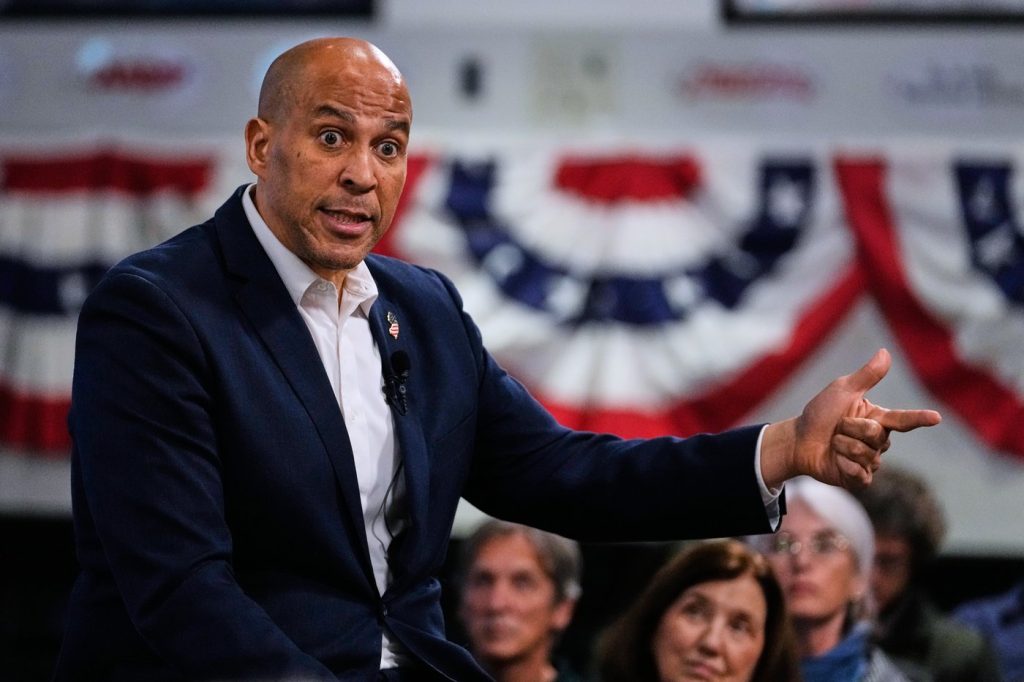In recent times, potential Democratic candidates for the 2028 presidential election are exhibiting a starkly different approach compared to their predecessors. Traditionally, presidential hopefuls were discreet about their ambitions, often disguising campaign activities as support for other candidates. However, the current political climate has prompted many Democrats to be more candid about their intentions, recognizing the appetite among voters for authenticity and direct communication.
For instance, New Jersey Senator Cory Booker openly acknowledged his thoughts about running for president during an interview with Fox News while on a visit to key early-voting state New Hampshire. He stated, "Of course I’m thinking about it. I haven’t ruled it out," even as he reminded his audience that he is primarily focused on his 2026 reelection bid.
California Governor Gavin Newsom echoed a similar sentiment in a CBS interview when he remarked, “I’d be lying otherwise. I’d just be lying and I can’t do that,” in response to queries about his possible candidacy after the 2026 midterms. This transparent behavior diverges from conventional political caution, allowing for a more open assessment of public interest in their ambitions.
While some Democrats are taking a direct approach, others remain reticent about declaring any presidential intentions. The Associated Press reached out to a dozen potential candidates for interviews, but none were available, reflecting the cautious stance some still maintain. Distinctly, Republicans are operating under different dynamics as many potential candidates lay low amidst expectations of Donald Trump's influence on the race ahead.
Political strategists believe that the Democratic candidates’ willingness to openly discuss their aspirations is advantageous, especially given the competitive and undefined nature of the 2028 field. With numerous individuals considering a run—including Kentucky Governor Andy Beshear and former Chicago Mayor Rahm Emanuel—this early declaration of intentions may help candidates stand out. Jess O’Connell, a Democratic strategist, emphasized the need for candidates to actively share their visions, stating, "You’ve got to be out there every single day fighting and sharing your vision."
The conversation around authenticity has intensified since Trump’s presidency, with many voters now rejecting traditional political tactics like evasive answers. Alex Conant, a Republican strategist, pointed out, “One of the takeaways from Trump is that people want authenticity,” suggesting that candidates’ honesty may resonate more with the electorate than political maneuvering previously considered standard.
However, not all candidates are embracing this open acknowledgment of their political aspirations. Illinois Governor JB Pritzker, for example, recently avoided direct responses about his presidential timeline during an interview, prompting a humorous reaction from journalist Kara Swisher. Similarly, Pennsylvania Governor Josh Shapiro has refrained from commenting on his political future, as speculation about his ambitions looms over him. Despite this, during an episode of “The Breakfast Club,” he expressed his deep commitment to public service, hinting at a desire to stay engaged in politics.
For candidates like Shapiro, the challenge remains to balance their political careers with the necessity of not detracting from critical midterm races. Strategist Mike DuHaime cautioned that candidates must remain mindful of their responsibilities and not detract from support for essential races while garnering national attention.
Seasoned political analysts point out that the risks of high visibility can include backlash from opponents and potential distractions from their current official duties. The balancing act involves being part of the national discussion while ensuring that they do not jeopardize their commitment to their constituents. O’Connell articulated a strategic approach: those aspiring for the presidency in 2028 should engage with their communities actively, helping to boost local economies and thereby enhance their public image.
As the landscape evolves, the motivations and strategies of potential 2028 candidates continue to adapt in this uncharted political territory, reflecting broader shifts in voter expectations and the dynamics of American politics.











